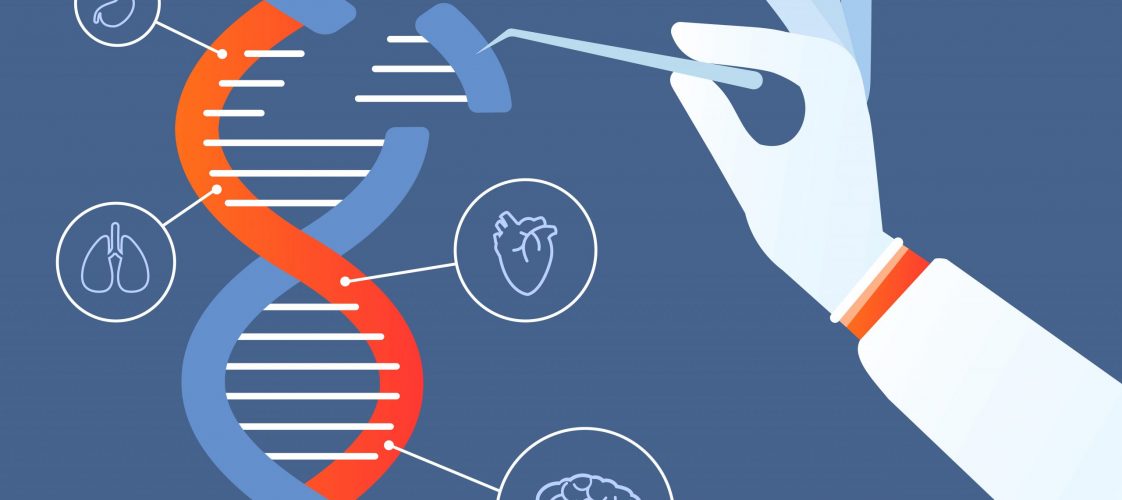
The center has primarily started to investigate the problems in infertile couples and mainly work on “reproductive genetics”, where the detected problems can be solved with IVF treatments. Later, he started to apply diagnosis and treatment techniques for couples with genetic diseases to have healthy children and to treat their sick children. Although it is one of the very few centers that can apply these techniques in the world, it has become the second center in the world in terms of the number of patients. and the work done in this area in particular “PGT Preimplantation Genetic Diagnosis” with the success of the application has many firsts in Turkey and abroad has become an active center in this regard.
ForeSENTIA is a new generation test that identifies genetic alterations involved in cancer. It consists of an extensive portfolio of cancer panels, which provide accurate molecular analysis of the tumor sample taken during biopsy. There are two panel categories, both of which offer indispensable prognostic value, guidance on treatment decisions and increased chance of successful treatment through precision medicine and targeted therapies. Comprehensive tumor profile panels: Wider coverage of genes implicated in specific cancer types Therapy-associated tumor profile panels: for selected clinically actionable alterations that are related to targeted therapies.
Hereditary cancer accounts for nearly 5-10{4b79e0e209b843c9fd41ba037911affca1943b1c34d17f7c937afc0dd753228f} of all cancers. With early detection through appropriate screening methods and prophylactic measures, the chances of prevention and successful treatment are higher.
The integration of cancer genetics in clinical practice enables physicians to distinguish a proportion of patients that have inherited mutations with increased risk susceptibility to certain cancers. The identification of such germline mutations allows for targeted cancer surveillance and prevention.
PreSENTIA, with an extensive portfolio of 19 hereditary cancer panels, tests for numerous inherited genetic mutations that could cause cancer in the future.
During pregnancy, fetal DNA travels from the placenta to the mother’s blood stream and circulates along with her own DNA. VERACITY is a new generation non-invasive prenatal test that accurately measures the fetal cell-free DNA in the maternal blood to detect the presence of fetal aneuploidies and microdeletions. VERACITY has been validated for both single and twin pregnancies as well as pregnancies conceived through in-vitro fertilization (IVF).
The doctor or lab collects a blood sample from the mother’s arm and sends it to our state-of-the-art laboratories for analysis. At the laboratory, cell-free DNA is isolated from the mother’s blood and analyzed using our proprietary, new generation analytic and bioinformatic technology. Results are provided to your doctor in a few working days.
Adventia carrier screening can be performed by any individual or couple when they wish to learn more about their genetic information to minimize the risk of transmitting a genetic disease to their children. Adventia can also be done during pregnancy if prospective parents wish to know whether their child has a risk of having a genetic disease.
Anyone can carry certain mutations (genetic changes) in their body. Some mutations may have no effect on our health and development, while others can cause a genetic disease. When an individual has a mutation in one of their genes, but the mutation is not powerful enough to be expressed, that individual is a carrier of a recessive disease. Two carriers of the same recessive disease can have a child who is affected, if the child inherits the mutation from both of them.
As carriers are asymptomatic, they are unaware of their carrier status and the risk of passing a mutation to their children. In fact, many mutations for recessive diseases could be inherited via multiple generations without clinical manifestation. Unless you have been tested, it is impossible to know whether you are a carrier of a recessive disease.
Thus, knowing your carrier status can provide information regarding your reproductive options and minimize the risk of transmitting a genetic disease to your children.
© 2021 M-Analiz Medical Analysis Laboratory | E&E Technology